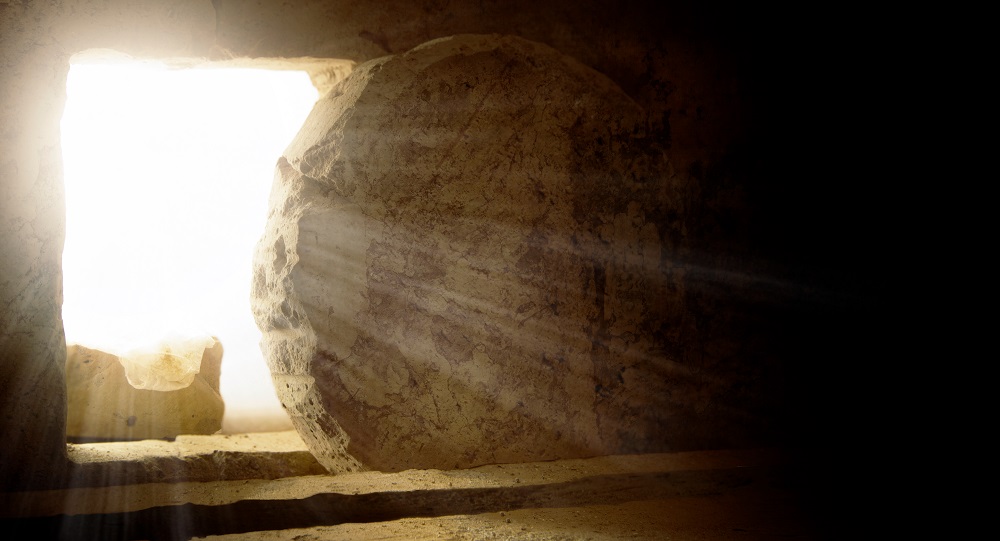
For our next series of weekday devotions, we are going to be looking at Cranmer’s collects and readings for Holy Communion on Sundays in the season of Easter. This week we begin with Easter Sunday.
For Christians, no one disputes that the ultimate source of truth is the Bible. But how is it to be interpreted? There’s the rub. In these matters, Cranmer sought to follow the practice of the ancient Church, since they were so much closer to the time of Jesus and the Apostles than all those who came after them. Therefore, following Augustine’s teaching, Cranmer’s first step was always to seek to interpret Scripture by Scripture. And that is what we have here in our two readings.
Of the four Gospel passages detailing the resurrection, Cranmer has chosen John 20:1-10, the only description which records an apostle seeing the empty tomb and immediately responding in faith: “Then went in also that other disciple which came first to the sepulcher, and he saw and believed.” That’s because Cranmer wants us to do the same! For him, the only proper response to the good news of Jesus Christ is to believe his promises for forgiveness and renewal of life now, and for life everlasting in the age to come. Faith alone unites us to Jesus, now and forever.
Justification (that is, our right standing with God) is based solely on trusting Christ’s work for us on the cross, not because of any of our own accomplishments or moral purity. In rising from the dead, Jesus has conquered sin as well as its ultimate consequence, death and eternal separation from God. He now offers to share these victories to all who simply put their trust in him. As Cranmer’s collect so succinctly put it: “Jesus Christ hast overcome death, and opened unto us the gate of everlasting life.” Christ has made this possible, not us.
But if we play no role in our salvation other than to believe the good news, does that mean we have no role, no responsibility, no required actions, other than belief, after we come into a saving relationship with God through Christ? Cranmer is always insistent that truth faith always produces the fruit of a transformed, if still imperfect, life. His reading from Col. 3:1-7 makes clear what are the consequences of believing the Christ rose from the dead: “If ye be risen again with Christ, seek those things which are above, where Christ sitteth on the right hand of God.” If our faith unites us to Christ, then his resurrection power is at work in us, changing our desires, so that we can “set [our] affection on heavenly things, and not on earthy things.” If our faith let us hang out with Jesus, then he will rub off on us over time.
This week, let’s earnestly pray that we do become more like Christ, using Cranmer’s collect.
-Revd Canon Dr Ashley Null